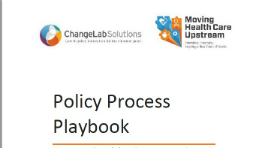OVERVIEW
Moving Health Care Upstream (MHCU) is based on the belief that health systems can address persistent and costly health inequities by moving “upstream”– beyond the walls of hospitals and clinics and into the communities, collaborating with community-based organizations to address the root causes of disease. The various areas of work within MHCU share a common focus- supporting hospitals and community stakeholders in testing and spreading strategies to move upstream, and sharing “what works” to inform the field and accelerate the upstream movement in the field as a whole. The Policy Learning Lab is one example of MHCU’s work to spread knowledge and accelerate action in the field.
Nemours Children’s Health System (Nemours) piloted the Policy Learning Lab under the auspices of MHCU in 2017. They were created to address inter-related challenges in the field:
1. Sustainability, Spread, Scale: For sustainability, program work must be combined with policy development. Without this connection, even the strongest programs are at risk of becoming one offs and of disappearing with shifts in funding or staffing. Policy can institutionalize good ideas, yet MHCU and others doing similar work have observed that many organizations and communities have not yet developed policies to institutionalize and grow their programs addressing upstream causes of disease and disparities.
2. Capacity: Local public policy and institutional policy is often developed by groups and coalitions whose members are unpaid volunteers or by those taking on the work on top of their formal accountabilities at work. This has implications for the capacity of those involved:
~ Knowledge & Skill- Often, clinicians and other practitioners who develop and implement programs are not “policy people,” and don’t have a high level of knowledge or skills related to developing local public policy and/or institutional policy.
~ Dedicated Time- Despite the potential effectiveness of learning collaboratives, MHCU staff have repeatedly heard that allocating dedicated time for participation is a challenge. Dedicating time to conduct targeted policy research and scans is also challenge for groups and coalitions.
The Policy Learning Lab pilot converted these challenges into opportunities by using a short-term (4 month) process to increase knowledge and skills of members and to provide teams with targeted policy tools (such as research and scans). These skills and tools are intended to accelerate the development of evidence-informed local public policy strategies and/or institutional policy strategies to target upstream causes of disease and disparities.
Topics for Policy Learning Lab (root causes of asthma and food insecurity) were chosen based on the input of health systems already associated with MHCU and were intended to fill a white space in the field. Our 2017 pilot involved seventeen teams: five in the Policy Learning Lab focused on root causes of asthma and twelve in the Policy Learning Lab focused on food insecurity (broken into two groups with six teams per group). Each team consisted of a health care organization plus an entity from at least one other sector. In 2018, we continued the work with five teams focused on food insecurity. (Scroll down for a list of teams in each Lab.)
Nemours contracted with ChangeLab Solutions as our lead partner based on their subject matter expertise on our chosen topics as well as their expertise in providing technical assistance on the development of local public policy and institutional policy. The expertise of ChangeLab Solutions was supplemented by additional subject matter experts who were involved on an as-needed basis, based on the needs of teams. Subject matter experts for the teams focused on root causes of asthma included Green & Healthy Homes Initiative and Nemours Health & Prevention Services. 2017 experts for teams focused on food insecurity included Feed1st at the University of Chicago’s Lindau Lab, Root Cause Coalition, and Prevention Institute. 2018 food insecurity experts included Food Action & Research Center (FRAC) and Children’s HealthWatch, under the auspices of their co-led network- the Hunger Vital Sign National Community of Practice.
The technical assistance provided to each team is available to the field at large- see our Compendium of Research and Technical Assistance Memos.
TEAMS IN THE 2017 + 2018 POLICY LEARNING LAB FOCUSED ON FOOD INSECURITY
- Anchorage, Alaska & surrounding rural counties (2017)
- Los Angeles, California (2017 + 2018)
- San Diego County, California (2017)
- Denver Metro Region, Colorado (2017)
- Wilmington, Delaware (2018)
- Atlanta, Georgia (2017 + 2018)
- Atlanta Metro Region (Fulton & Dekalb counties), Georgia (2017 + 2018)
- Central Louisiana (10 rural parishes) (2017 + 2018)
- New Orleans, Louisiana (2017 )
- Blackfeet Reservation, Montana (2017)
- Harris County, Texas (207)
- Tarrant County, Texas (2017)
- Seattle, Washington (2017)
TEAMS IN THE 2017 POLICY LEARNING LAB FOCUSED ON ROOT CAUSES OF ASTHMA
- Watsonville, California
- Washington, District of Columbia
- Orlando, Florida
- Chicago, Illinois
- Grand Rapids, Michigan








